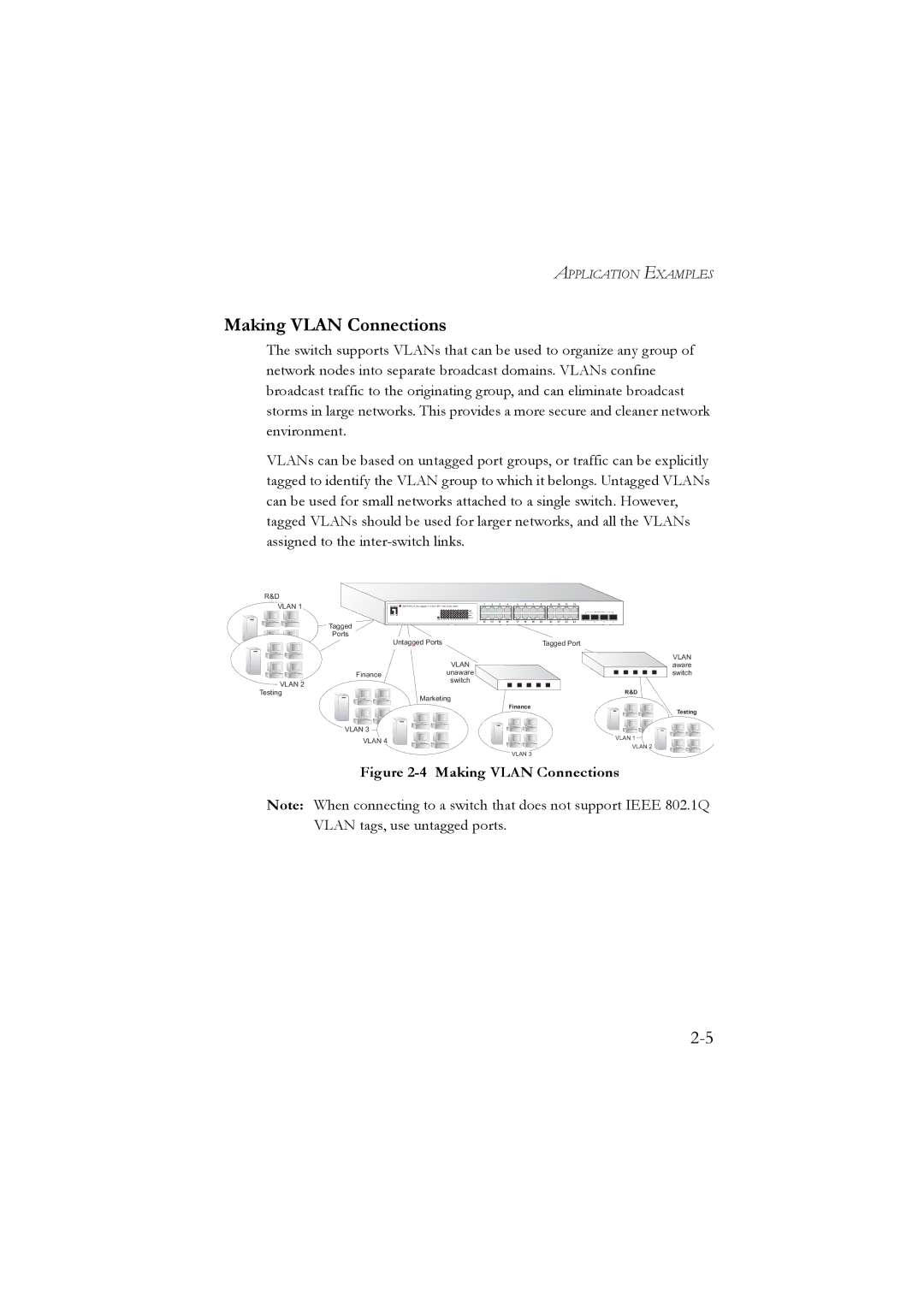
APPLICATION EXAMPLES
Making VLAN Connections
The switch supports VLANs that can be used to organize any group of network nodes into separate broadcast domains. VLANs confine broadcast traffic to the originating group, and can eliminate broadcast storms in large networks. This provides a more secure and cleaner network environment.
VLANs can be based on untagged port groups, or traffic can be explicitly tagged to identify the VLAN group to which it belongs. Untagged VLANs can be used for small networks attached to a single switch. However, tagged VLANs should be used for larger networks, and all the VLANs assigned to the
R&D
VLAN 1
Tagged
Ports
Finance
VLAN 2
Testing
VLAN 3
level | 1 | 2 | 3 | 4 | 5 | 6 | 7 | 8 | 9 | 10 | 11 | 12 | |
|
|
|
|
|
|
|
|
|
|
|
| ||
o n e |
|
|
|
|
|
|
|
|
|
|
|
13 | 14 | 15 | 16 | 17 | 18 | 19 | 20 | 21 | 22 | 23 | 24 |
Untagged Ports | Tagged Port |
VLAN
unaware
switch
R&D
Marketing
Finance
VLAN aware switch
Testing
VLAN 4 | VLAN 1 |
|
VLAN 2
VLAN 3
Figure 2-4 Making VLAN Connections
Note: When connecting to a switch that does not support IEEE 802.1Q VLAN tags, use untagged ports.
